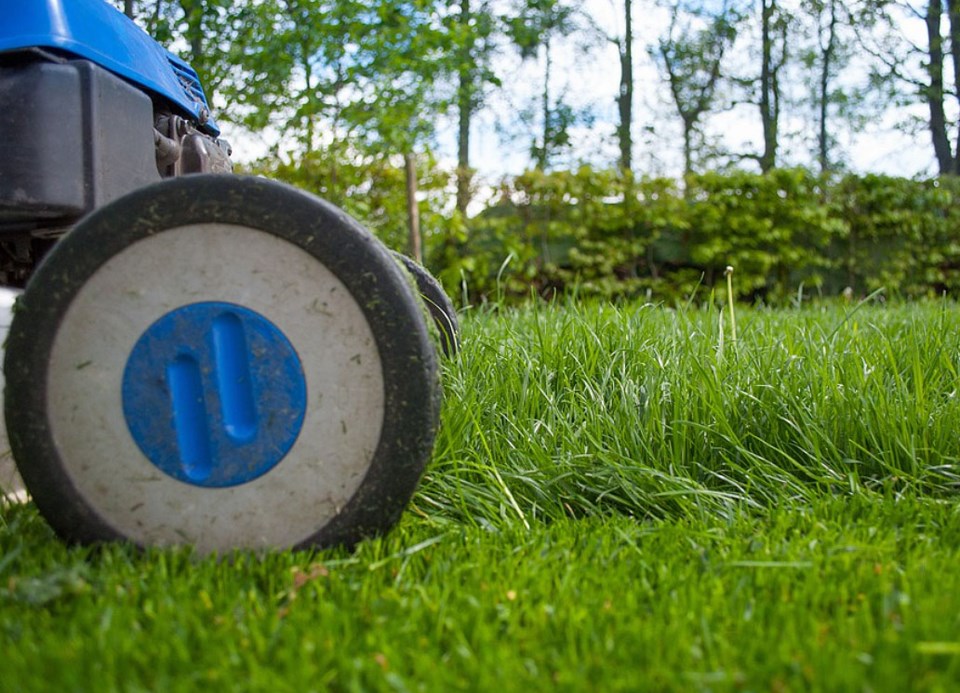Metro Vancouver moved one step closer to phasing out small gas engines Thursday after the climate action committee tasked staff to engage the public — including industry and local governments — on how to best to eliminate pollution from gas-powered lawn and garden equipment.
The move represents an early step toward regulating the use of small non-road gas engines and incentivizing a shift to electric alternatives. Esther Berube, Metro’s division manger of air quality bylaw and regulation development, told the committee doing so could have a huge impact on air quality.
“Leaf blowers, pressure washers and lawnmowers in all small non-road equipment used in our region produce half as much emissions as those that are involved with 1.3 million light-duty vehicles every year,” said Berube.
According to a Metro staff report, there are 400,000 to 600,000 units of small non-road equipment used in landscaping and light industry across the region. About 80 per cent of the equipment is for personal use. But the remaining 20 per cent operated by professional in parks and commercial landscaping is used more heavily, and therefore accounts for nearly half the total emissions from such equipment.
All those two-stroke engines produce a variety of carbon monoxide, nitrogen oxides, fine particulate matter, and volatile organic compounds — substances that are particularly dangerous for children, pregnant people, elderly people, and those with respiratory conditions, notes the report.
Berube said even being outdoors, workers with heart conditions can experience deterioration of their health after being exposed to engine exhaust at close range for long periods of time.
“These are engines that don't burn very, very cleanly, and definitely have impacts on the health of the workers and people around the equipment as well,” she said.
Metro director and Vancouver Councillor Adrian Carr raised concerns over the weight and cost of the equipment, especially for professional landscapers.
Metro staff said it had consulted cities across the region, the BC Landscape and Nursery Association, equipment manufacturers, the provincial government and other jurisdictions in Canada.
Staff said heavy users tend to turnover equipment every four to five years. That could make swapping gas motors for electrical alternatives a relatively quick prospect with the right plan, incentives and regulations.
Committee representatives from Surrey and New Westminster said their cities had already started the transition to electric landscaping equipment.
“We’re already going this way in Surrey,” said Surrey Councillor Mike Bose.
“If you're not changing over your weed eater today because of the price of gas, you're silly.”
Bose said what was missing was engagement with retailers who could be impacted by any gas engine phase out. He also pushed for incentives to push change instead of regulations that increase costs.
“There are limits to where we can go right now. A four-hour battery that takes 12 hours to charge doesn’t help when maintaining [soccer] fields,” Bose said.
Committee vice-chair and New Westminster Mayor Patrick Johnstone said city maintenance crews in his city were “happy to make the change,” and avoid the pollution and vibrations that come with gas engines.
Metro staff said a number of U.S. cities, as well as Vancouver, Toronto and Oak Bay, had already moved to phase out small gas engines. Letters from the District of West Vancouver and the City of Vancouver supported a phase out, raising residents’ concerns around noise and air pollution.
Johnstone raised concerns that Metro was falling behind and even moving slower than industry itself.
An April 16 letter from the CEO of the BC Landscape and Nursery Association called on Metro Vancouver to provide incentives to the industry to make the transition and find ways to overcome everything form high equipment costs to safety concerns.
Staff said exemptions could be made for high performance tools with no electric alternatives. Exemptions could also apply during increased seasonal workloads, to emergency response crews or farm operations.
Former firefighter and Township of Langley Councillor Tim Baillie said a lot of departments are moving over to battery-powered extrication tools — like the '' — to get away from toxic fumes. He said their remain problems with battery life in cold temperatures and safety concerns around cheap charging station equipment and the potential for fire.
Metro staff said the next step would be to collaborate with golf courses, landscape professionals, member municipalities and other small businesses to collaborate on a draft strategy for reducing emissions from small gas motors.
Some committee members said they were frustrated at how slow Metro was moving. Mayor Johnstone warned that regulations would be required to push some to phase out the small gas motors.
“There are 20 per cent of them that are going to have to get shoved. But the 60 per cent in the middle are ready. Let’s do it,” he said.
Others, like Belcarra Mayor Jamie Ross, said proper education and incentives could help avoid conflict to start with.
“There’s a huge cost. There’s a cost to gasoline,” said Ross. “There’s also a health cost.”
“There’s a chance to bring us together.”




